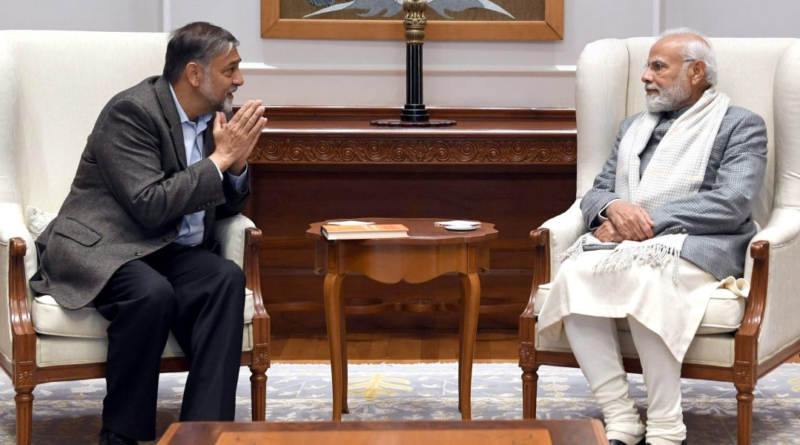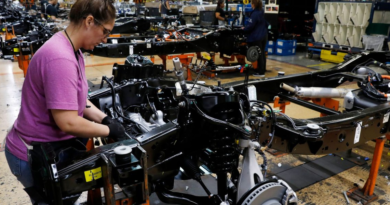Vivek Wadhwa: ‘I lost my wife to cancer in 2019–and decided to defeat it for good. Now all of India is joining my quest for world-saving innovation’
After losing my dear wife Tavinder to cancer in June 2019, I made it my life’s mission to do what she asked: prevent others from suffering the way she did. Tavinder knew that I would be devastated without her–and that the only thing that would keep me going was to help others.
So, with the assistance of the leading oncologists and medical researchers who tried to help save her, I prepared a grand plan to cure cancer, which incorporates the exponential technologies that I used to teach at Carnegie Mellon’s School of Engineering in Silicon Valley, such as genetic sequencing, machine learning, advanced sensors, and synthetic biology.
The plan was to launch the largest clinical trial in world history, one that would help hundreds of thousands of cancer patients by providing them with the most advanced treatments, with the guidance of global experts. It entailed collecting genetic data and bio-samples, creating 3D organoids so that the tumor would be the guinea pig rather than the patient, and open-sourcing select, anonymous data in order to enable researchers around the globe to do what the medical industry’s culture of secrecy prevents them from doing: developing cures.
The problem was that such a plan could not be implemented in the United States, because of the vested interests in maintaining the status quo and protecting the profits of the medical industry. So I turned to India.
India’s culture and values embody a fundamental belief in a human-centric approach to technology, knowledge-sharing, and uplifting humanity. Yes, there are many roadblocks in India, but its deep-rooted spiritual values triumph.
At a meeting with Prime Minister, Narendra Modi, in 2019, he pledged his whole-hearted support to the grand plan–and then again in a follow-up meeting we had last month at his home in New Delhi.
India has another asset too: philanthropists and industrialists with the highest ethical values. The person I consider to be one the greatest humanitarian of our times, Ratan Tata, and the Tata Group, ended up partly funding a project that Tata’s former lieutenant and head of Tata Trusts, R. Venkataramanan, presented to them: to overhaul India’s cancer care system. Venkat and his co-founder and medical director, Moni Abraham Kuriakose, asked me to work with them to implement a distributed cancer care network to guide patients through the entire process of cancer treatment–and implement my grand plan.
Karkinos Healthcare, the company that they started, is demonstrating India’s unique ability to solve global problems. In two years, it has made tremendous progress. It is now in operation at 68 hospitals across the country, has screened 400,000 patients, assisted more than 25,000 people with early symptoms, and saved hundreds of lives. It has acquired the most advanced genomic sequencing and diagnostics equipment and built bio-sample repositories, as well as a comprehensive cloud-based I.T. infrastructure for medical data and reports.
At our recent meeting with Prime Minister Modi, the director of Clinical Research at Massachusetts General Hospital Cancer and Harvard Medical School Keith Flaherty said that India is about to leapfrog the U.S. in cancer research.
“There is no other organization on the planet that can integrate cutting-edge, patient-facing digital tools and molecular diagnostic platforms to navigate patients for current therapies while also guiding the discovery and development of the next generation of therapies,” he added. He told the PM that U.S. academic medical centers are not even close to being able to do such things, because they will never have the free flow of information between clinical care and research environments.
As Flaherty explained in a more detailed discussion that you can watch, in the U.S., Europe, and the Pacific Rim, separate analyses are being done with clinical, pathology, radiology, molecular, and treatment data. In no environment are all of those data elements able to be combined to capture all of the complexity of cancer data and use those insights to corner the disease with next-generation, rational combination therapies. In most of these countries, the data privacy laws are similar, according to R. Venkatramanan. But each builds barriers to sharing data and knowledge so there is no way to integrate technologies for molecular and therapeutic sensitivity testing under one roof, which can be deployed simultaneously on individual tumor specimens to guide therapy selection, clinical trial participation, and the discovery of novel combinations as well as new mechanisms.
India’s recently introduced Ayushman Bharat Digital Mission is a welcome departure from this reductionist compartmentalization of healthcare information because it facilitates and mandates interoperability between health systems.
As Gary Reedy, the former CEO of the American Cancer Society, told the prime minister, “Because India has no vested interests to protect and has a culture of giving and sharing, it can do what the West only dreams about.” Both Flaherty and Reedy noted a big difference between the U.S. and India: patients even in the most remote Indian villages are ready to trust the caregivers and technologies.
This is also why I am working on having another company that I have long been mentoring and recently made an investment in, bring its agriculture technologies to India. Founded in Santiago, Chile, the company, Plasma Water Solutions, has made breakthroughs in replicating the magic that Mother Nature uses to nurture and protect its flora: plasma-activated water (PAW), something that results when lightning (plasma) passes through air and water. The company’s devices, with the power consumption of a hairdryer, convert air and water into PAW without any chemicals or residues.
Pesticides and chemical fertilizers have well-documented links to cancer, so reducing them will help eliminate one of the many sources of this disease. A single application of PAW can kill almost all plant bacteria and pathogens. The PAW also provokes plants into activating natural defenses against predators, and it accelerates seed germination and seedling growth. Through software-controlled modulations, the devices can also generate nitrates, nature’s fertilizers. The results of six months of testing on farms across America are mind-blowing. When vegetables are washed with PAW, they resist fungal infections. And merely treating seeds in PAW dramatically increases their germination and growth rates. In a single season, per-acre melon yields have increased by a hundred boxes of fruit, and spinach and sorghum per-acre yields have each increased by some 450 kg. And this is all organic.
As Plasma Waters CEO Robert Hardt and founder Alfredo Zolezzi said, one of the reasons for their making India a priority is the country’s openness to tech-enabled development in sectors ranging from agriculture to education. From the dawn of recorded history, India led the world in science and innovation–and it is ready to do so again.
This is why India’s leadership of the G20 comes at such an opportune time. The world is suffering from widespread inequality and industrially induced climate change, and India has the ability to solve such global problems without creating more of them. As Prime Minister Modi said to me in a tweet, India is brimming with enthusiasm for science and technology and its young people are leveraging the power of science to make our planet better.
Vivek Wadhwa is an academic, entrepreneur, and author. His book, From Incremental to Exponential, explains how large companies can see the future and rethink innovation.
The opinions expressed in Fortune.com commentary pieces are solely the views of their authors and do not necessarily reflect the opinions and beliefs of Fortune.



